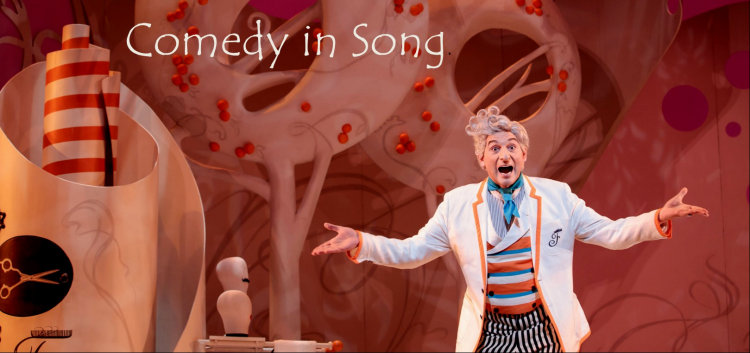GO TO: [A–C] [D–F] [G–K] [L–N] [O–R] [S–U] [V–Z]
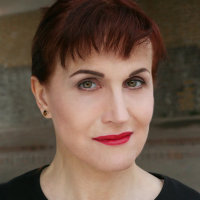
Anderson is best known as the longest-serving member of the trio Fascinating Aïda, joining founder Dillie Keane in 1984; with Keane as composer, she has written almost all the group's material. She has also had a successful though less high-profile career as an actor. More recently, she revealed herself as a transgender woman, and has been active in causes promoting understanding of gender change. 7.

Wikipedia begins: [Beaumarchais] "was a French polymath. At various times in his life, he was a watchmaker, inventor, playwright, musician, diplomat, spy, publisher, horticulturist, arms dealer, satirist, financier, and revolutionary (both French and American)." Two of his three Figaro plays, The Barber of Seville (1775) and The Marriage of Figaro (1784), have been immortalized as operas by Rossini and Mozart respectively. 1.
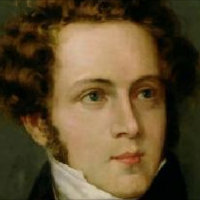
The short-lived Bellini, who was born in Sicily, trained in Naples, and finally achieved success in Milan and Paris, with his operas La sonnambula, Norma, and I puritani. Renowned for his long melodic lines and psychological acumen, he was the quintessential composer of bel canto opera. 3.
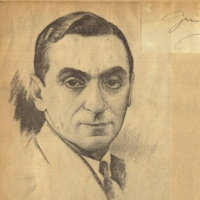
Berlin (b. Israel Beilin) arrived in the US from Russia at the age of 5. Although he could not read music and could barely play, he wrote over 1,500 songs with the aim, in his words, "to reach the heart of the average American." With hits like "Easter Parade," "White Christmas," "God Bless America," and the musical Annie Get Your Gun (1946), one might say he succeeded. 4.

Boïto composed a number of operas, of which Mefistofele (1867) is the most often performed. But his fame rests mainly on his masterly libretti for Verdi (Othello and Falstaff) and several other composers. 1.

Brecht's importance to musical theater rests mainly on his collaborations with Kurt Weill between 1928 and 1932: The Threepenny Opera, Happy End, Mahagonny, and The Seven Deadly Sins. A Communist, he fled the Nazi régime, but returned after the War to found the celebrated Berliner Ensemble in East Berlin. 7.
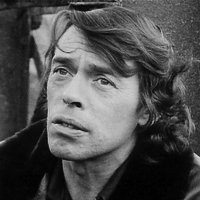
With little academic training and a dead-end job, Brel began performing locally in Belgium. By the mid-1950s, however, his songs were being picked up by other artists and he began touring in France and overseas, rapidly becoming famous as the new voice of the French chanson. The pressure became too much, and he gave his final live performance in 1967, thereafter devoting himself to films, as an actor and later director. Meanwhile, his music continued to spread, giving rise for instance to the 1968 American musical Jacques Brel is Alive and Well and Living in Paris. He died in the Maquesas Islands of lung cancer. 7.
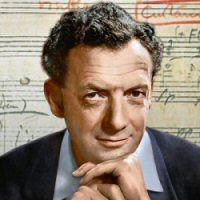
Arguably the leading opera composer of the mid-20th century, Britten's major operas have included Peter Grimes (1945), Billy Budd (1951), Gloriana (1953), A Midsummer Night's Dream (1960), and Death in Venice (1973), plus many stage works for smaller forces. He was equally active as a composer of instrumental music and text settings, and latterly as a conductor and accompanist. 1.
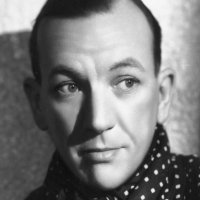
Coward established himself early on as an actor and prolific author of light plays such as Private Lives (1929) and Blithe Spirit (1941). During WW2, he worked for British intelligence. When his stage career resumed, a large part of it was in revues and, latterly, solo cabaret performances, trading on his well-deserved reputation as a wit and impeccable crafter of comic songs. 7.
GO TO: [A–C] [D–F] [G–K] [L–N] [O–R] [S–U] [V–Z]
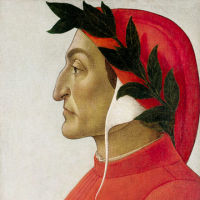
Dante is so highly regarded as the author of the Divina Commedia and founder of Italian poetry, that any capsule biography here would be superfluous. There are at least five operas based on his work: Puccini's Gianni Schicchi, plus versions of Francesca di Rimini by Mercadante, Rachmaninoff, Ambroise Thomas, and Zandonai. The portrait by Botticelli is posthumous. 5.
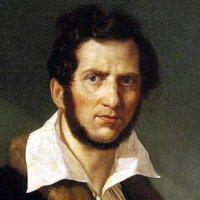
One of the leading composers of historical and romantic operas in the bel canto era, including a trilogy featuring Tudor Quens, plus comedies in both Italian and French, Donizetti nonetheless began his career with a mythological scene, Pygmalion. 3.
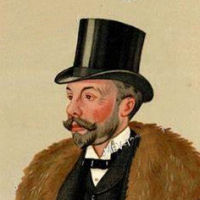
Originally a singer and conductor, D'Oyly Carte found great success later by commissioning the 14 "Savoy Operas" from Gilbert and Sullivan, building a theatre to perform them in (plus an hotel), and controlling their subsequent distribution through stringent copyright. His posthumous grip on their performance did not end until 1961. His foundation of the Royal English Opera was markedly less successful. 6.
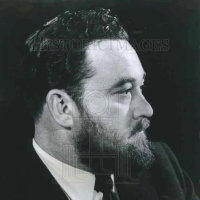
His appearances in various productions at Oxford seemed to destine Flanders for a great career as an actor, but War intervened. While serving with the Royal Navy, he contracted polio, and spent the rest of his life in a wheelchair. But this did not stop a second career as a writer for the BBC and theater—nor a third one, teamed up with composer Donald Swann to perform some of the many songs they had written together, beginning when both were pupils at Westminster School. 7.
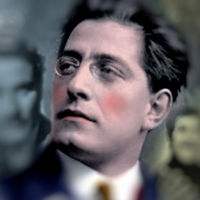
Forzano wrote libretti for several early-20th-century Italian composers, but he is mainly remembered for Puccini's Suor Angelica and Gianni Schicchi, both premiered in 1918. He was a stage director at La Scala for many years, and also collaborated closely with Mussolini, co-writing several plays promoting Fascist ideals. 5.
GO TO: [A–C] [D–F] [G–K] [L–N] [O–R] [S–U] [V–Z]

The author of many straight plays as well, Gilbert gained lasting fame as the librettist and theatrical genius behind the 14 operettas ("Savoy Operas") written with Arthur Sullivan between 1871 and 1896. These became almost as popular in America as the were in Britain. 6.
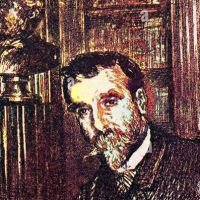
Halévy was one of the most celebrated librettists of his time, generally working in collaborations with other writers. He is best remembered for his work with Henri Meilhac, which includes Bizet's Carmen and La Périchole and many other operettas by Offenbach. The composer Fromental Halévy was his uncle. 2.

Janácek turned to opera fairly late in his career, but his half-dozen mature works in the medium place him in the forefront of opera composers of the 20th century, not only for their distinctive musical style but also their unusual structure and dramatic innovation. Among them are: Jenufa (1903), Káta Kabanová (1921), The Cunning Little Vixen (1923), The Makropoulos Affair (1925), and From the House of the Dead (1928). 1.
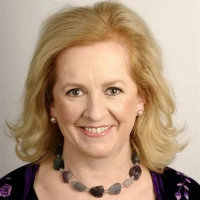
After being expelled from high school, Keane studied music in Dublin, then quit that to study acting in London. With such a start, she has gone her own way as a stage actor, and composer of cabaret songs that she herself performed, first solo, then with the changing members of the group Fascinating Aïda, which she founded in 1983, famous for its flaunting of conventional taboos. 7.
GO TO: [A–C] [D–F] [G–K] [L–N] [O–R] [S–U] [V–Z]
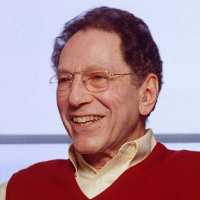
Lehrer graduated in mathematics from Harvard in 1946, and later taught there and other prestigious schools. All this time, however, he was writing and performing songs, generally on contemporary or satirical subjects. For a while in the 1950s and 1960s, this activity blossomed into his main career, as he recorded and performed albums of his compositions that became best-sellers. 1, 7.
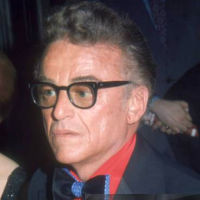
Lerner was born in New York City, the son of a clothing retailer; he studied for a while at Juilliard and graduated from Harvard. With composer Frank Loesser, he wrote the lyrics for Brigadoon (1947), My Fair Lady (1956), and Camelot (1960) among several others. 1, 4.
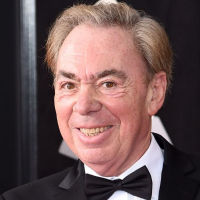
Baron Lloyd-Webber is credited with reinvigorating the stage musical with a series of hits that include Jesus Christ Superstar (1970), Evita (1976), CATS (1981), and The Phantom of the Opera (1986). He has also written a certain amount of non-theatrical music, including an anthem for the coronation of King Charles III. 10.
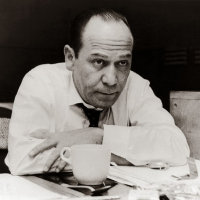
Loesser wrote over 700 songs in his 40-year career, together with the musicals Guys and Dolls, How to Succeed in Business Without Really Trying, The Most Happy Fella, and the film Hans Christian Anderson. 1.
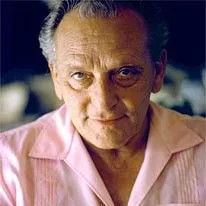
Frederick (Fritz) Loewe was born in Berlin, the son of a Jewish operetta star. He was a piano prodigy, the youngest soloist to appear with the Berlin Philharmonic. In 1924 his father got an offer to appear in New York, and Fritz traveled with him, hoping to write for Broadway—an ambition that was not fulfilled until he teamed with lyricist Alan Jay Lerner and wrote the musicals Brigadoon (1947), My Fair Lady (1956), and Camelot (1960) among others. 1, 4.
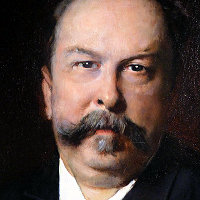
With Ludovic Halévy, he wrote the libretti for Bizet's Carmen and several Offenbach operettas including La belle Hélène and La Périchole. He was also the librettist of Massenet's Manon. In addition to his operatic libretti, he wrote more than 75 plays. 2.

As a writer, Mérimée is probably best known for his 1845 novella Carmen, which became the basis of the 1875 Bizet opera. He also wrote the play on which Offenbach and his collaborators based La Périchole (1868). In public life, he served as superintentant of French monuments, supervising the restoration of Notre Dame and (with George Sand) discovering and preserving the celebrated Unicorn tapestries. 2.
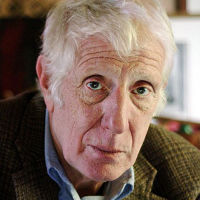
Even before he came to fame as one of the four writer-performers in the comedy review Beyond the Fringe in 1960 (with Alan Bennett, Peter Cook, and Dudley Moore), Miller had qualified as a doctor and begun a career in medicine—something he continued on and off for the rest of his life as a researcher, writer, and television presenter. Shortly after leaving Fringe, he trained as a director, eventually joining the National Theatre and directing The Merchant of Venice with Olivier. He also branched out into opera with landmark productions such as a Mafia Rigoletto and a non-Japanese Mikado for the English National Opera and Pelléas et Mélisande and The Rake's Progress for the Met. 6.

A child prodigy as both performer and composer, Mozart produced an extraordinary body of work in all genres over a relatively short life. He wrote the greatest of his many operas after moving to Vienna: three collaborations with Lorenzo da Ponte—The Marriage of Figaro (1786), Don Giovanni (1787), and Così fan tutte (1790)—framed by two German Singspiels: The Abduction from the Seraglio (1782) and The Magic Flute (1791). 1, 8.
GO TO: [A–C] [D–F] [G–K] [L–N] [O–R] [S–U] [V–Z]
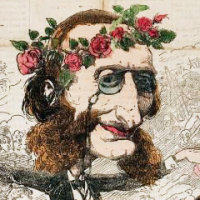
The son of a cantor, Offenbach took the name of the German town near Cologne in which he was born. After studying briefly at the Paris Conservatoire and establishing a career as cello soloist and conductor, he began to write operettas, composing over 90 in the course of a long and wildly successful career. He is also known for his unfinished grand opera The Tales of Hoffmann. 2.
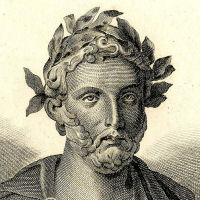
Nothing much is known about this playwright, whose comedies are the earliest known Latin works to have survived other than in fragments. He may have worked in the theatre as a young man and then become an actor. His plays are mostly based on Greek models—direct translations in some cases—but they were hugely popular and provided the groundwork for a tradition of farce that has continued to the present day. [The portrait is imaginary.] 4.
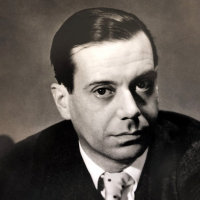
Unlike many Broadway composers, Porter wrote not only the music but the lyrics for his songs, and these are notable for their wit, clever rhyming, and encyclopedic range of reference. In addition to numerous standalone songs that became standards, he also wrote musicals such as Anything Goes (1934), Kiss Me, Kate (1948), and Can-Can (1953). 1.
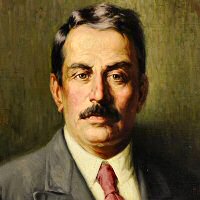
Puccini took up the mantle of Verdi as the dominant opera composer of the late 19th century, and developed an international popularity that is unrivaled to this day. His principal works include: Manon Lescaut (1893), La bohème (1896), Tosca (1900), Madama Butterfly (1904), and the unfinished Turandot (1926). 5.
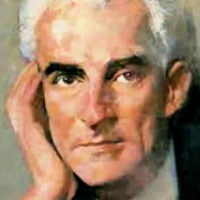
Though often grouped with Debussy as a musical Impressionist, Ravel was very much his own man. As a composer with a strong sense of tradition, he often wrote in older dance forms. As a virtuoso pianist, he wrote piano music of transcendent difficulty that extended the range of piano techniques. And as a master orchestrator, he enriched 20th-century music with some of its most vibrant colors. 11.
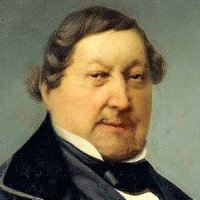
Rossini's fame rests on his 39 operas, especially the comedies, all written while he was still in his thirties. In 1829, fter writing Guillaume Tell, one of the foundation stones of French grand opéra, he essentially retired, settling in Paris, and writing only occasional pieces plus his masterpieces of sacred music, the Stabat Mater of 1842 and Petite Messe solennelle of 1864. 1, 3.
GO TO: [A–C] [D–F] [G–K] [L–N] [O–R] [S–U] [V–Z]
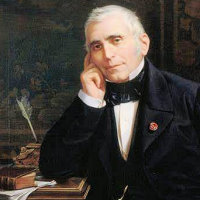
Scribe wrote between 300 and 500 works for the stage. Although his spoken plays are seldom revived, his formula of the "well-made play" remained as a standard principle for at least a century. His opera libretti include the first French grand opéra, Auber's La Muette de Portici, Rossini's Le Comte Ory (both 1828), numerous works for Meyerbeer, a couple for Offenbach, and Verdi's Sicilian Vespers (1855). 3.
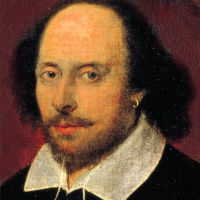
With almost 40 plays, 154 sonnets, and many longer poems, Shakespeare dominates English literature of his time, and world literature for ever after. To attempt a thumbnail biography would be both unnecessary and impossible. 1.
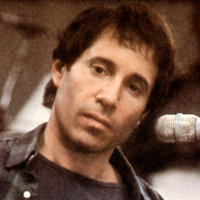
Paul Simon first came to attention through his partnership with Art Garfunkel, whom he met when both were 11; their partnership lasted until 1970, with songs like "Bridge over troubled water" becoming an indelible part of American counterculture. On his own, Simon continued to enjoy success with albums like Graceland (1987). Whether as a singer or guitarist, he has blazed an original path, for example bringing influences from Africa, Brazil, and other world musics into the American scene 7.
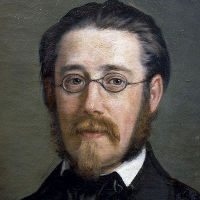
Known as the "father of Czech music," his works Ma vlast (My Homeland) and The Bartered Bride most clearly exemplify the tide of Romantic Nationalism, but only a small portion of his works have entered the international repertoire. 9.
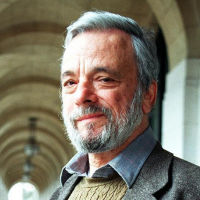
A protégé of Oscar Hammerstein's, Sondheim made his Boadway debut in 1957 as lyricist for West Side Story and Gypsy, but he soon began his own string of musicals, writing the music as well as the words, including A Funny Thing Happened on the Way to the Forum (1962), A Little Night Music (1973), and Sweeney Todd (1979). Often dealing with non-traditional subjects, these and others largely redefined the Broadway in the later 20th century. 4, 12.
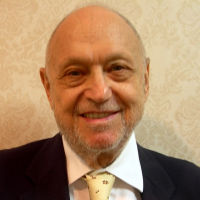
A graduate of Eastman, Strouse originally aspired to a career in classical music, but Nadia Boulanger advised him that his gift for light music was invaluable. His Broadway musicals include Bye Bye, Birdie (1960, with Lee Adams), Applause (1970, Adams), and Annie (1986, with Martin Charnin). He also wrote the theme music for the TV series All in the Family. 4.
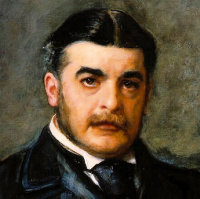
Sullivan essentially had two careers: as a classical composer of orchestra music and oratorios on suitably uplifting subjects, and as the musical partner to W. S. Gilbert on the highly successful series of Savoy Operas from HMS Pinafore (1878) to The Gondoliers (1889) and beyond. History only remembers him in the latter role. 1, 6.
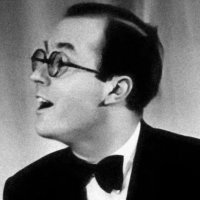
Meeting up in 1948 with his former schoolfriend Michael Flanders, Swann began collaborating on comic songs. These were performed first by other artists and later by the collaborators themselves in a long-running revue called At the Drop of a Hat (1956). That and its sucessor played all over the world, becoming a frame of reference for an entire generation. Swann continued composing after Flanders' death, mainly for plays, and performing both solo and with his own group of singers. 7.
GO TO: [A–C] [D–F] [G–K] [L–N] [O–R] [S–U] [V–Z]
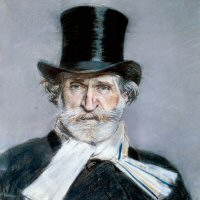
Verdi's two dozen or more operas (depending on how you count them) make him the leading Italian opera composer of his time and among the two or three greatest opera composers ever. After what he called his "years in the galleys," he hit his stride in the early 1850s with the trio of Rigoletto, Il Trovatore, and La Traviata. He intended Aïda (1870) to be his last work, but was persuaded out of retirement to write his final Shakespearean masterpieces: Otello (1886) and Falstaff (1893). 1.
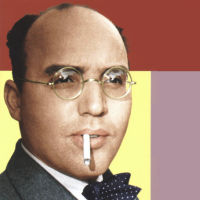
Weill became famous in Berlin for his collaborations with Bertolt Brecht, among them The Threepenny Opera (1928, a satirical adaptation of John Gay's The Beggar's Opera) and the political opera The Rise and Fall of the City of Mahagonny (1930). Fleeing Nazi Germany, he eventually settled in New York in 1935, finding new fame on Broadway, but also writing more operatic fare such as Street Scene (1946, with Langston Hughes). 7.
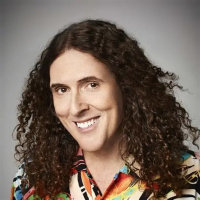
Alfred Michael Yankovic began performing his comic songs at the age of 16, and continued in the public eye for over three decades. His longevity in a genre noted mainly for one-hit wonders derives in part from his willingness to throw himself into the zany unpredictability of his "Weird Al" persona, his acute choice of material to parody (nowadays always with the consent of the original artist), and his development of video as an integral part of the product. 7.
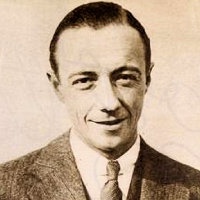
Youmans published only around 100 songs in his lifetime, but 18 of these are recognized by ASCAP as standards. He collaborated with lyricists such as Ira Gershwin, Oscar Hammerstein, and Irving Caesar, with whom he wrote No, No, Nannette in 1925, his best-remembered show. 4.
